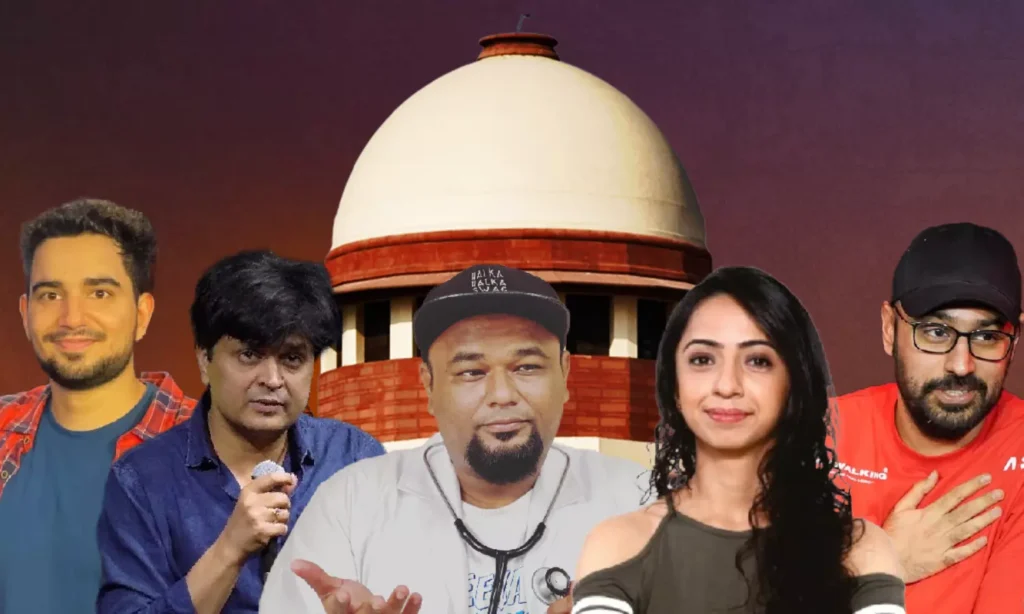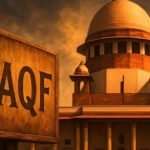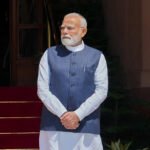The Supreme Court on Monday directed stand-up comic Samay Raina and four others to post an unconditional public apology on their YouTube/podcast channels for ridiculing persons with disabilities (PwDs), warning that “commercial speech” cannot trample dignity. The bench also asked the Union government to place draft guidelines for online content before the court.

The order signals a sharper line on the responsibility of influencers and comedians in India’s booming digital economy. By foregrounding the right to dignity alongside free speech, the Court is shaping how platforms, creators, and brands treat content that stigmatizes vulnerable communities—especially PwDs. Penalties are on the table, and sector-wide rules could follow.
Details (inverted pyramid)
- The order & who’s involved: A bench of Justices Surya Kant and Joymalya Bagchi told Samay Raina, Vipul Goyal, Balraj Paramjeet Singh Ghai, Nishant Jagdish Tanwar, and Sonali Thakkar (aka Sonali Aditya Desai) to display unqualified apologies prominently on their channels. The court said it will consider monetary penalties at the next hearing. Their personal appearance was dispensed with for future dates.
- The principle laid down: Justice Bagchi observed that humor becomes problematic when it targets communities, adding that today’s “so-called influencers” are commercializing speech, so free speech norms cannot be applied as if it were purely private expression. Justice Kant said penal consequences under the IT Act could be proportionate to the harm. Quotes were recorded by legal reporters in open court.
- What prompted the case: The petition by Cure SMA Foundation of India alleged that segments on a show mocked PwDs and referenced Spinal Muscular Atrophy (SMA) in an insensitive manner, seeking guidelines to prevent disabling humor online. In May, the Supreme Court had issued notices and warned of coercive steps to secure presence; by July, the five appeared and were granted time to respond.
- Names and context cross-confirmed: Multiple outlets reported the same five names and the Court’s insistence on unconditional, public apologies across platforms where the content appeared, with emphasis on YouTube and podcasts. Coverage also noted the court’s broader docket that day included petitions linked to the “India’s Got Latent” controversy and online content regulation.
Key quotes from the hearing:

- “Humor is well taken… But when we start laughing at others and create a breach of sensibility on a community plane, it becomes problematic… It’s not only freedom of speech; it’s commercial speech.” — Justice Joymalya Bagchi.
- “The degree of repentance should be higher than the degree of offending…” — Justice Surya Kant, while indicating apologies and costs would be assessed.
- Government’s position: Attorney General R. Venkataramani told the Court he would file draft guidelines for regulating online content that ridicules PwDs and other protected groups, while cautioning there cannot be a “complete gag.”
- Larger legal framing: The Court’s approach implicitly balances Article 19(1)(a) (free speech) with Article 21 (right to life and dignity), a point reiterated in coverage from the legal press. The bench signalled that platform-monetized speech invites a higher duty of care and potential IT Act consequences.
What’s next?
- Immediate compliance: The five named comics must publish clear, unconditional apologies on the same channels where the content reached audiences—YouTube and podcasts—and report compliance to the Court.
- Policy track: The Attorney General will place draft content guidelines on record; stakeholders may be heard before the Court finalizes a framework.
- Penalties: The bench said it will decide the quantum of costs/penalties at the next hearing after reviewing compliance and submissions.
According to reporting and documents summarized by LiveLaw, The Indian Express, and Mint, including on-record remarks from the bench and the Attorney General: LiveLaw (legal proceedings and quotes); Indian Express (bench observations, AG stance); Mint (names, order details, background).
Conclusion
Supreme Court’s directive to Samay Raina and four other comedians marks a turning point in India’s digital content ecosystem. By emphasizing the dignity of persons with disabilities over profit-driven humor, the Court has drawn a clear line between freedom of expression and harmful speech. For creators, brands, and platforms alike, the message is unambiguous: influencer content carries responsibility, and accountability will follow when boundaries are crossed. The upcoming government guidelines may further reshape the landscape, ensuring that India’s booming comedy and influencer industry evolves with greater sensitivity, inclusivity, and respect.











